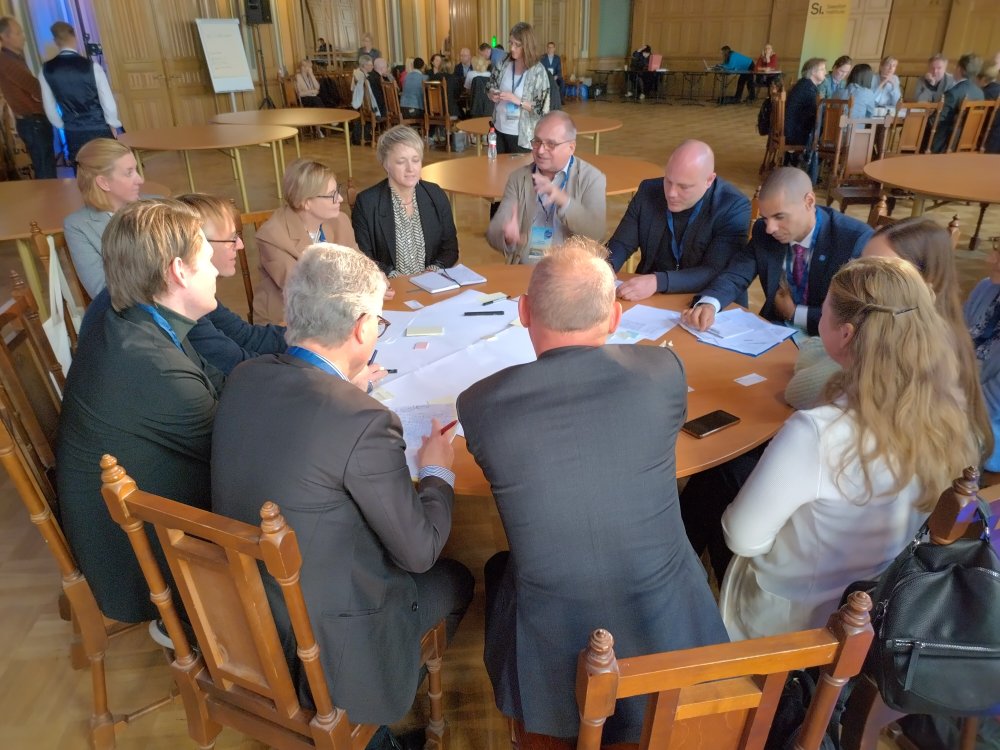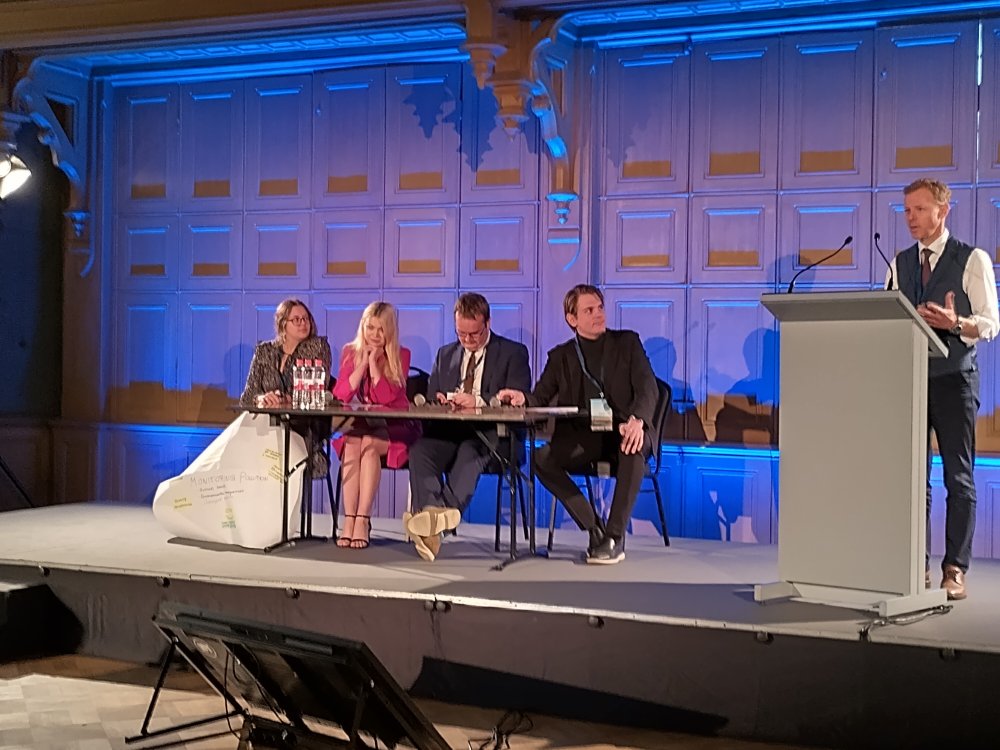News
Strengthening and developing cooperation with Ukraine to empower sustainable rebuilding
- Details
- Published: 24 October 2023
Text: Elsi Kauppinen, Policy Area Nutri Cooridinator
Several Policy Areas of the EU Strategy for Baltic Sea Region have a common interest in saving the Baltic Sea. Part of Ukraine around the city of Lviv belongs to the catchment area of the Baltic Sea through the Vistula River. Nutrient pollution coming from Ukraine to the Baltic Sea has not decreased, so there is a need to address that. However, that challenge is just a tiny one in comparison to the many more serious challenges Ukraine is facing today.
Policy Areas Nutri, Hazards, Ship and Bioeconomy joined forces with the CBSS and the Swedish Institute to discuss how to help Ukraine on their road towards a full EU-partnership and sustainable rebuilding. The EU membership comes with several requirements related to environmental standards and practices. Solving these challenges will take time, and it is already important to start taking the first steps.
The workshop aimed at exploring needs for future cooperation between the Baltic Sea region and Ukraine, focusing on how to empower sustainable rebuilding. The workshop was opened by Johan Magnusson from EU DG REGIO with messages from the EU about how the support for Ukraine will continue and deepen in the future. This important message was followed by a discussion between Nadija Afanasieva (Ukrainian Institute of International Politics), Camilla Wristel (Swedish Institute) and Lotta Ruokanen (HELCOM) moderated by Torfi Johannesson. Nadija Afanasieva described how Ukraine is already active in the EU Strategy for the Danube Region and how the experiences from the Baltic Sea Region especially about subjects related to saving the sea would be valuable for sustainable rebuilding of Ukraine. Camilla Wristel presented the long history of cooperation with Ukraine they have in the Swedish Institute and different programmes where Ukrainian stakeholders and institutions can join. Lotta Ruokanen explained how nutrient inputs from Ukraine to the Baltic Sea have not decreased but rather increased, and how HELCOM is following the situation.
The panel discussion was followed by roundtable discussions. There were four different roundtables, each hosted by Policy Area coordinators (Nutri, Hazards, Ship, Bioeconomy) and joined by a Ukrainian expert, an expert from the Baltic Sea Region and a youth participant. The audience joined in the roundtable discussions. Main results of the discussions were collected by the youth participants and coordinators.
Some key results:
- Needed communities for cooperation: self-governments, communities, universities, youth
- Fields for cooperation: knowledge sharing, education, practical lessons learnt in the Baltic Sea Region
- The cooperation must address the current and future challenges in Ukraine and exact data on issues and then offer tailored support to the identified needs. In some cases, exchange and support on how to monitor and obtain data can be part of the collaboration
- Networks of cities can act as first aid in getting the know-how to Ukraine: EURO-CITIES and twin cities are an already existing network and can help in finding needs and setting up monitoring systems
- Fostering an open dialogue between Ukraine and the Baltic Sea region to exchange innovations and lessons learned. It is also useful to acknowledge that there are currently many EU and regional funding instruments with possibilities for supporting Ukraine (for example SI Baltic Sea Neighbourhood programme, which will have a call open 15 November 2023 and close 15 February 2024).
The workshop was summed up by Dr Olga Trofimtseva (Former Acting Minister of Agricultural policy and Food of Ukraine, Mykolaiv Water Hub). Her main message was that we need to treat Ukraine as already being part of the EU. To build connections and bring Ukraine into networks that are needed for becoming a full EU-partner.
We received valuable feedback also after the event. One of the main points was that there is a need for more involvement from Ukrainian youth. This could be facilitated through establishing youth groups or networks between young Ukrainian professionals with young professionals in the Baltic Sea Region. Invited Ukrainian experts expressed that it was important for them to hear advice from European colleagues and to make connections.
These lessons will be taken over by the Policy Area coordinators and their work in facilitating cooperation between the Baltic Sea Region and Ukraine will only start gaining momentum. Contacts to all Policy Area coordinators can be found on the EUSBSR website, and they are ready to help with any requests related to building the cooperation.

Picture: Roundtable discussions during workshop.

Picture: Youth participants from the Baltic Sea Region Youth Forum sharing the key messages from roundtable discussions.
Contacts to Policy Areas:
Elsi Kauppinen / PA Nutri This email address is being protected from spambots. You need JavaScript enabled to view it.
Louise Floman / PA Hazards This email address is being protected from spambots. You need JavaScript enabled to view it.
Mirka Laurila-Pant / PA Ship This email address is being protected from spambots. You need JavaScript enabled to view it.
Torfi Johannesson / PA Bioeconomy This email address is being protected from spambots. You need JavaScript enabled to view it.
Kirstian E.B. Pousen / PA Bioeconomy This email address is being protected from spambots. You need JavaScript enabled to view it.